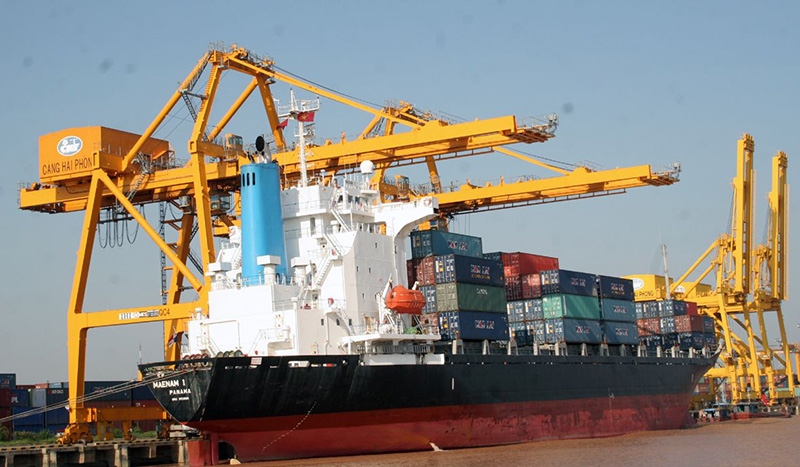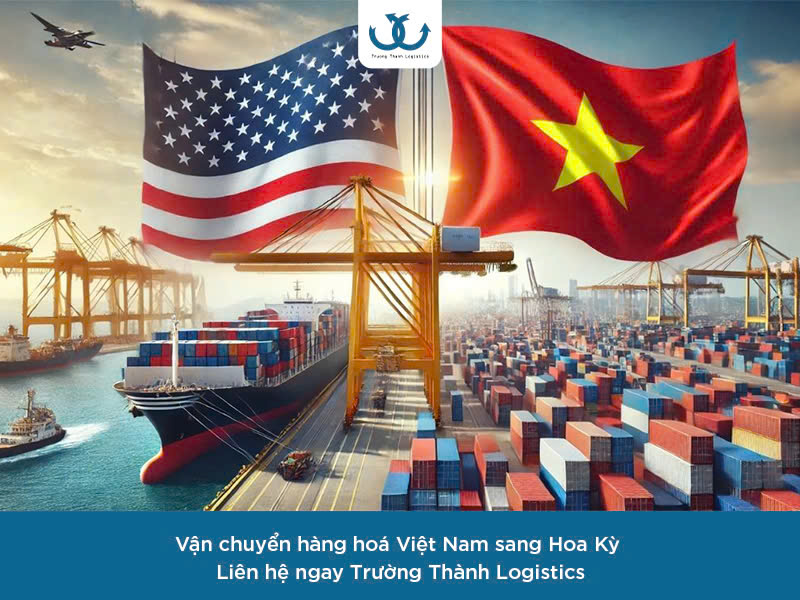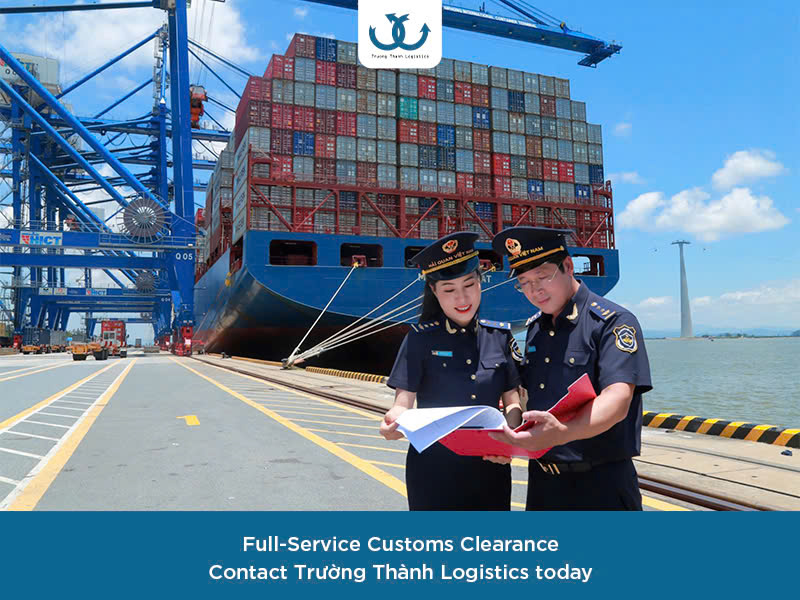The Certificate of Free Sale (CFS) plays a vital role in ensuring the quality of goods and building trust in the international market. This is a mandatory document for certain specific items when exporting or importing, helping businesses meet legal requirements and facilitate smooth customs clearance.
So, what is a CFS, what is its significance, and what needs to be prepared to apply for one? Let Trường Thành Logistics, a professional logistics service provider, explore the details to help businesses optimize their import-export processes!
Certificate of Free Sale (CFS) – A Passport for Goods
According to Article 36 of the Law on Foreign Trade Management 2017, the Certificate of Free Sale (CFS) is a document issued by a competent state authority in the exporting country, certifying that the goods are allowed to be legally produced and circulated in that market. This is not just a legal document but also proof of the product’s quality and safety, helping goods overcome import barriers in the international market.
A valid CFS must include:
+ Name of the issuing authority.
+ Certificate number and date of issue.
+ Name and classification of the product/goods.
+ Manufacturer information (name, address).
+ Signature and seal of the issuing authority.
The CFS confirms that the product has been inspected and meets the standards in the exporting country, creating a competitive advantage for businesses.

Why is CFS Important in Import-Export?
A CFS is not just a piece of paper; it is a bridge that helps Vietnamese goods conquer the global market. Let’s explore the significance of CFS from two perspectives:
For the Importing Market
+ Affirming Quality: A CFS is “living proof” that helps customs authorities and consumers trust the safety and reputation of the product, especially for sensitive items such as food or pharmaceuticals.
+ Enhancing Brand Appeal: A product with a CFS is like wearing a badge of honor, confirming that it has passed rigorous inspections, thereby attracting international customers.
+ Facilitating Customs Clearance: A CFS helps minimize additional inspection requirements, avoiding the risk of goods being detained or refused import.
For the Exporting Enterprise
+ Expanding Markets: A CFS is a key to easily accessing demanding markets such as the EU, the US, or Japan.
+ Saving Costs and Time: A valid CFS helps businesses avoid the costs arising from supplementing documents or handling legal disputes.
+ Establishing Reputation: Committing to product quality through a CFS helps businesses build a professional and trustworthy image.
Which Goods Require a CFS?
Not all goods require a CFS, but certain product groups under Appendix V of Decree 69/2018/ND-CP (dated May 15, 2018) are mandatory to have this certificate, including:
+ Food: Processed food, fresh food, food additives, or beverages.
+ Pharmaceuticals: Medicines, raw materials for medicine production, or medical equipment.
+ Cosmetics: Skin care products, hair care products, or makeup cosmetics.
+ Chemicals: Industrial chemicals, agricultural chemicals, or chemical preparations.
+ Agricultural and Seafood Products: Certain exported products such as coffee, cashew nuts, shrimp, or frozen fish.
How to Obtain a CFS Quickly?
Conditions for Obtaining a CFS
To receive a CFS, businesses need to meet the following:
+ Formal Request: The exporting trader must submit a written request for a CFS.
+ Legal Standards: The goods must meet the announced applicable standards (e.g., food safety, hygiene, or quality standards).
CFS Application Documents – Complete and Professional
The set of documents to be prepared includes:
+ Written Request for CFS: Original copy (in Vietnamese and English), clearly stating:
– Name of goods, HS Code.
– Certificate of standard number or product registration number.
– Composition, content (if applicable).
– Name of the importing country.
+ List of Manufacturing Facilities: Original copy, clearly stating the name, address, and list of exported goods.
+ Business License: Certified copy (Enterprise Registration Certificate or Investment Registration Certificate).
+ Announced Standards: Certified copy, along with information on labels, packaging, or accompanying product documents.
CFS Application Process
Step 1: Submit Application:
+ Send directly, by post, or online (if applicable) to the CFS issuing authority under the Ministry of Industry and Trade.
+ Common authorities: Departments of Import-Export Management in Hanoi, Ho Chi Minh City, or Da Nang.
Step 2: Document Check:
+ Within 3 working days, the issuing authority checks the validity of the documents.
+ If missing/incorrect, the business is notified to supplement documents or undergo inspection at the production facility (if necessary).
Step 3: Issue CFS:
+ Valid applications are processed and the CFS is issued within 3 working days from the date of receiving complete documents.
+ If rejected, the issuing authority sends a written notice clearly stating the reasons.
+ Receive CFS: The business receives the original copy at the authority or via the online system.
CFS Issuing Authority
According to Clause 2, Article 5 of Circular 12/2018/TT-BCT, the competent authorities under the Ministry of Industry and Trade for issuing CFS include:
+ Hanoi: Department of Import-Export Management, 54 Hai Ba Trung, Hoan Kiem.
+ Da Nang: Department of Import-Export Management, 7B Cach Mang Thang Tam, Hai Chau.
+ Ho Chi Minh City: Department of Import-Export Management, 12 Nguyen Thi Minh Khai, District 1.
Important Notes When Applying for a CFS
+ Check the List of Goods: Refer to Appendix V of Decree 69/2018/ND-CP to determine if your goods require a CFS.
+ Synchronize Information: Ensure that the information on the application documents (product name, HS code, standards) matches the labels and export documents.
+ Prepare Early: Submit the application before exporting the goods to avoid customs clearance delays.
+ Handle Lost/Damaged CFS: Submit a written request for re-issuance, along with relevant documents. The re-issued copy will have the words “CERTIFIED TRUE COPY” and will be issued within 1 year from the date of issuance of the original.
+ Avoid Violations: Forging documents or falsely declaring standards may lead to CFS revocation, affecting the business’s reputation.
Trường Thành Logistics – Your Companion in Exporting
With over a decade of experience, Trường Thành Logistics offers comprehensive solutions for businesses:
+ In-depth Consultation: Support in identifying the list of goods and preparing CFS documents in accordance with regulations.
+ Transparent Process: Coordination with the CFS issuing authority, ensuring businesses receive documents on time.
+ International Network: Links with customs and global partners, facilitating rapid customs clearance.
+ Reasonable Costs: Clear quotations, optimizing budgets for businesses.
+ 24/7 Support: A team of experts ready to answer and handle any arising issues.
Don’t let complex procedures hinder your export journey! Let Trường Thành Logistics accompany you, providing fast and efficient solutions for obtaining the Certificate of Free Sale (CFS). Contact us now for a free consultation.
For assistance with import and export information, international freight, sea transport or import entrustment, please contact Truong Thanh Logistics at the address:
Truong Thanh Logistics – Dedication, Prestige
Hotline: 0915 36 38 39
Headquarter: 26th Floor, Tower A, Song Da Building, Pham Hung, Nam Tu Liem, Hanoi.
Email: sale@truongthanhjsc.com
info@truongthanhlogistics.com
Website: www.truongthanhlogistics.com
Hai Phong Branch
Address: R.A11, TTC Building, 630 Le Thanh Tong, Hai An, Hai Phong
Da Nang Branch
Address: 27 Nguyen Ba Lan, My An Ward, Ngu Hanh Son District, Da Nang.
HCMC Branch
Address: Room 41, 4th floor, Casanova building, 85 Nguyen Son street, Phu Thanh ward, Tan Phu district, Ho Chi Minh City











